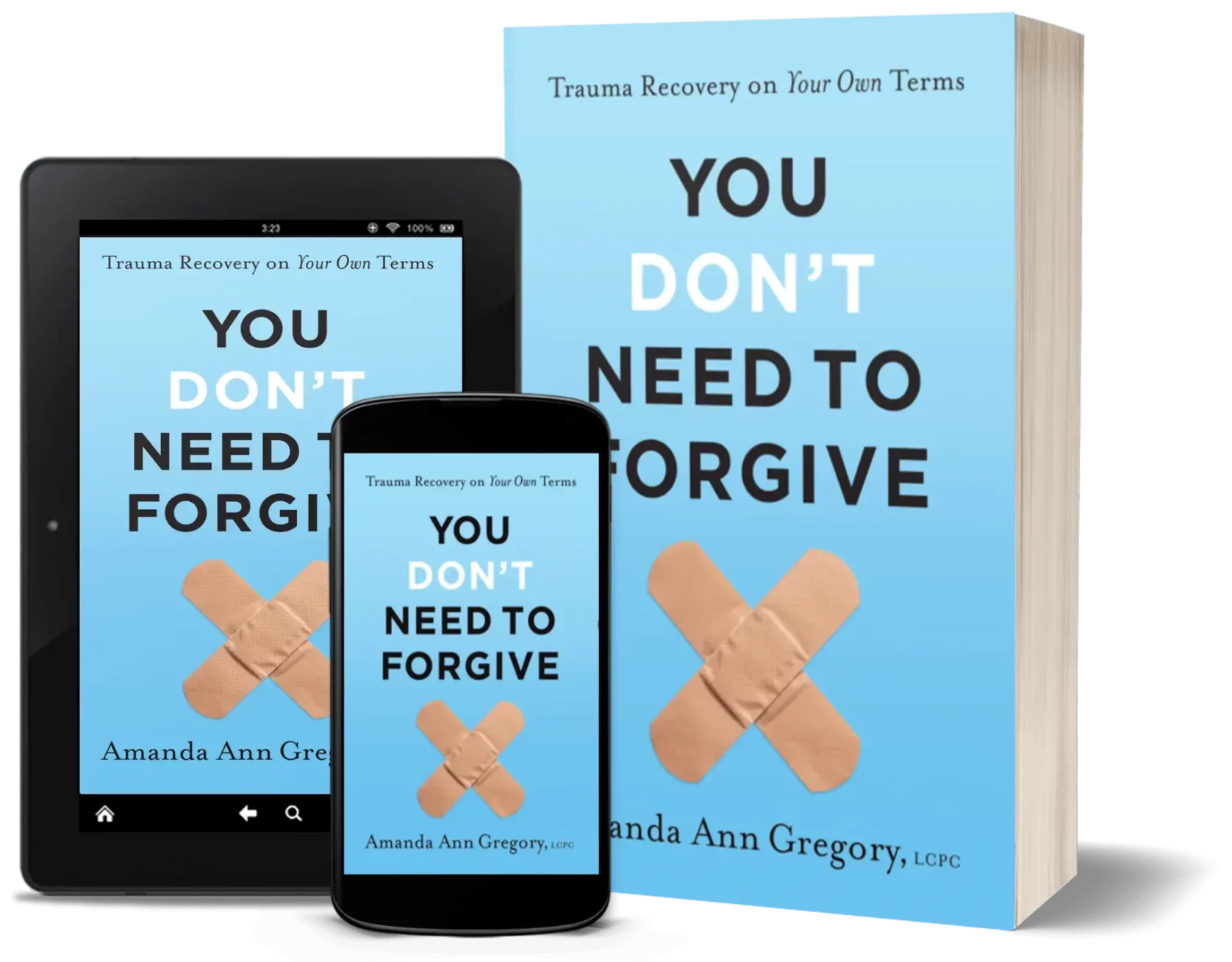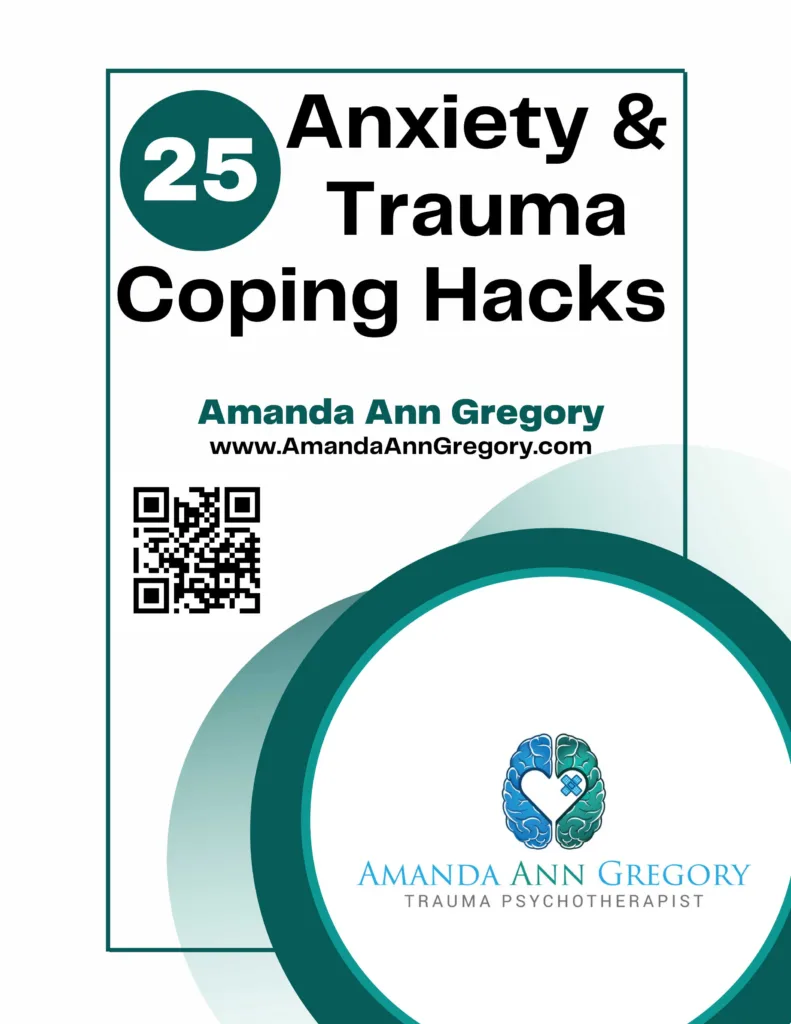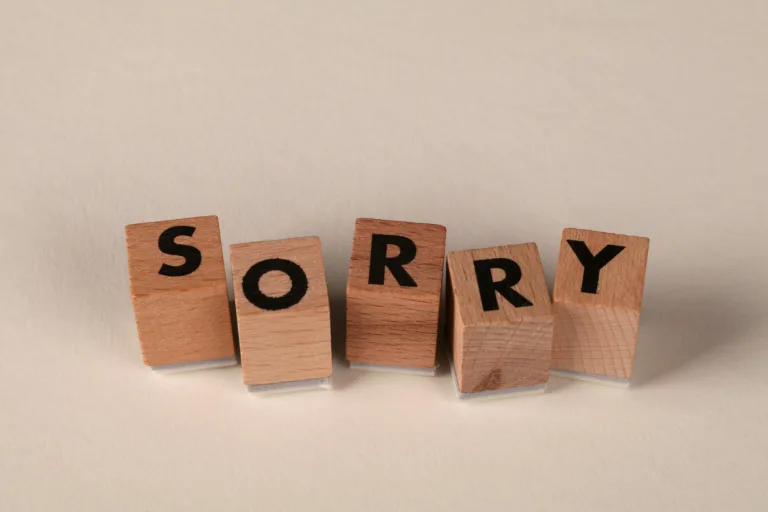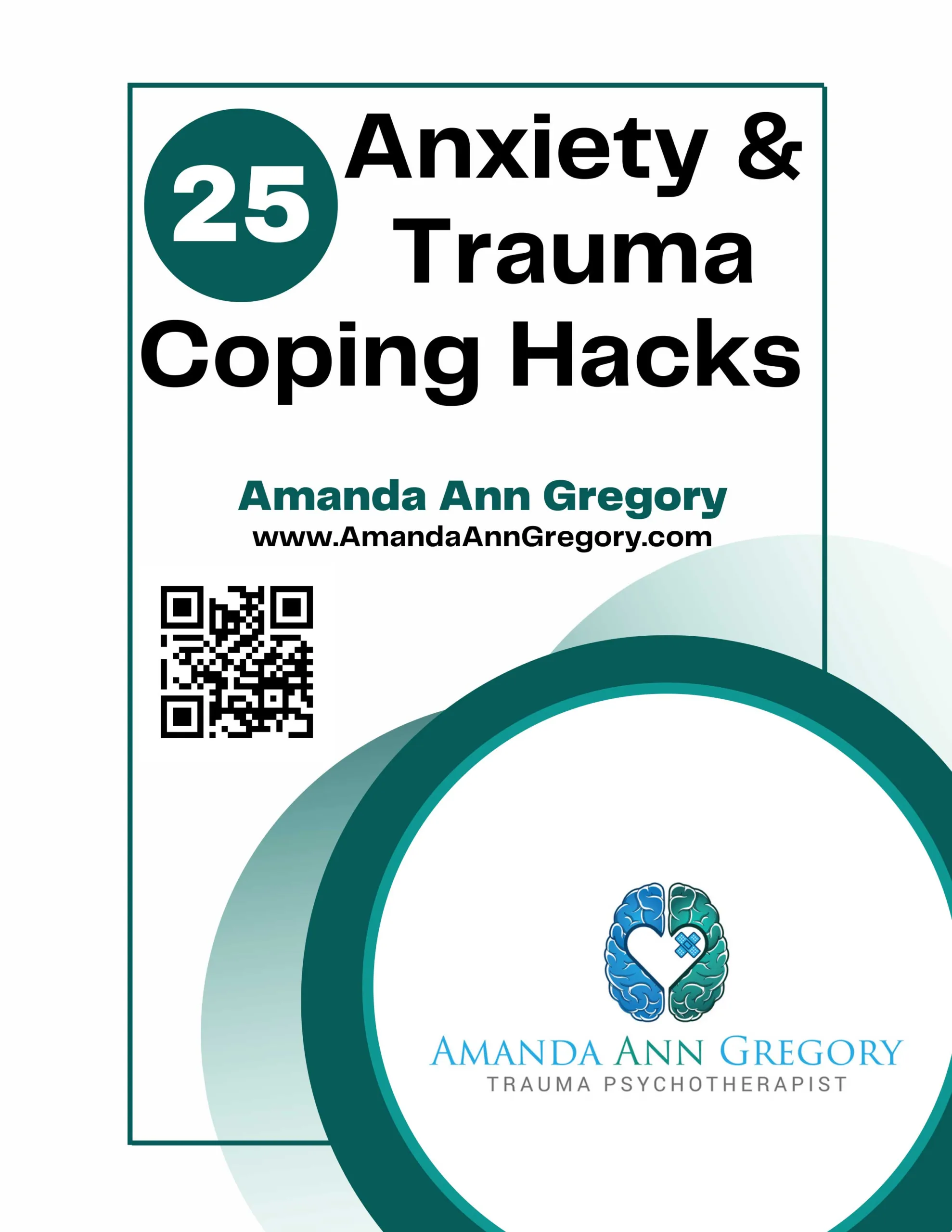EMDR—Eye Movement Desensitization and Reprocessing—is a type of treatment which is gaining popularity among therapists and clients. EMDR uses eye movements or other types of bilateral stimulation to help the client to process distressing memories and beliefs.
EDMR is best known as a method to treat trauma. In fact, I refer to EMDR as an effective method of trauma recovery in my book, You Don’t Need to Forgive. Although EMDR was created to treat trauma it can also be effective to address any past or recent events which cause current distress.
Have you ever wondered what EMDR is like from a client’s perspective? I recently interviewed four clients* who are participating in EMDR therapy and who offered to share their experiences.
How long have you participated in EMDR?
Ruth: Eight months
Paul: Four months
Anna: Three months
Tim: On and off for two months
Why did you decide to try EMDR?
Ruth: I was looking for an alternative method that didn’t involve medication.
Paul: I was recommended by two friends who had similar trauma histories and it worked for them.
Anna: I was having troubles with remembering stuff and talking about the past. I read a bit about it and heard it was effective.
Tim: I was told by other people. I’ve heard good things as far as overcoming trauma and how it can go deeper than talk therapy.
What have you noticed since you started EMDR?
Ruth: I’ve noticed that my trauma that’s been suppressed needs to get out. I was unaware of how deep-rooted my trauma experiences have been and how it’s affected my relationships. EMDR has made me more aware of my own power and resources within to resolve and heal from trauma.
Paul: I can work on everything, not just trauma—like negative beliefs and positive beliefs. I can work on anything that I want to work on.
Anna: I’ve been able to connect things together, like thoughts and beliefs that I haven’t been able to connect before. It feels like it sinks in more. After an EMDR session, my mind takes it further and I continue to make connections that help me.
Tim: I’ve noticed that it has helped me process my thoughts. I wouldn’t have been able to do that on my own. It’s helped me track and connect my thoughts more fluidly.
What don’t you like about EMDR?
Ruth: It can be very destabilizing. You need to make sure you have a safe place in your schedule and a support system in case you feel destabilized.
Paul: I get tired after a session. I have to sleep more that night.
Anna: Sometimes I leave very tired and want to shut off the lights and curl up into a ball, I’m so tired.
Tim: As much as it helps to go to places that I wouldn’t go otherwise, on the flip side, it sometimes brings me to places that I wasn’t planning to go, and I miss things that I would have liked to touch on.
Would you recommend EMDR to a friend?
Ruth: Yes. For my many trials at working on trauma, it has been the most authentic way of processing it out of anything I’ve tried before. It goes deeper than talk therapy, and it’s organic, as it’s from within.
Paul: I’ve told so many people about it. It’s changing my life for the better—I love the person I’ve become.
Anna: Yes. It’s helped me to talk about things I wouldn’t ordinarily talk about in therapy. A lot of the stuff in my head I don’t talk about in therapy, all that stuff comes out in EMDR.
Tim: I have already recommended it to my friends. It’s a good alternative to talk therapy.
Purchase my book, You Don’t Need to Forgive

Sign up to get your Free eBook: 25 Anxiety & Trauma Coping Hacks

Hire me to speak at your event! Contact Me






